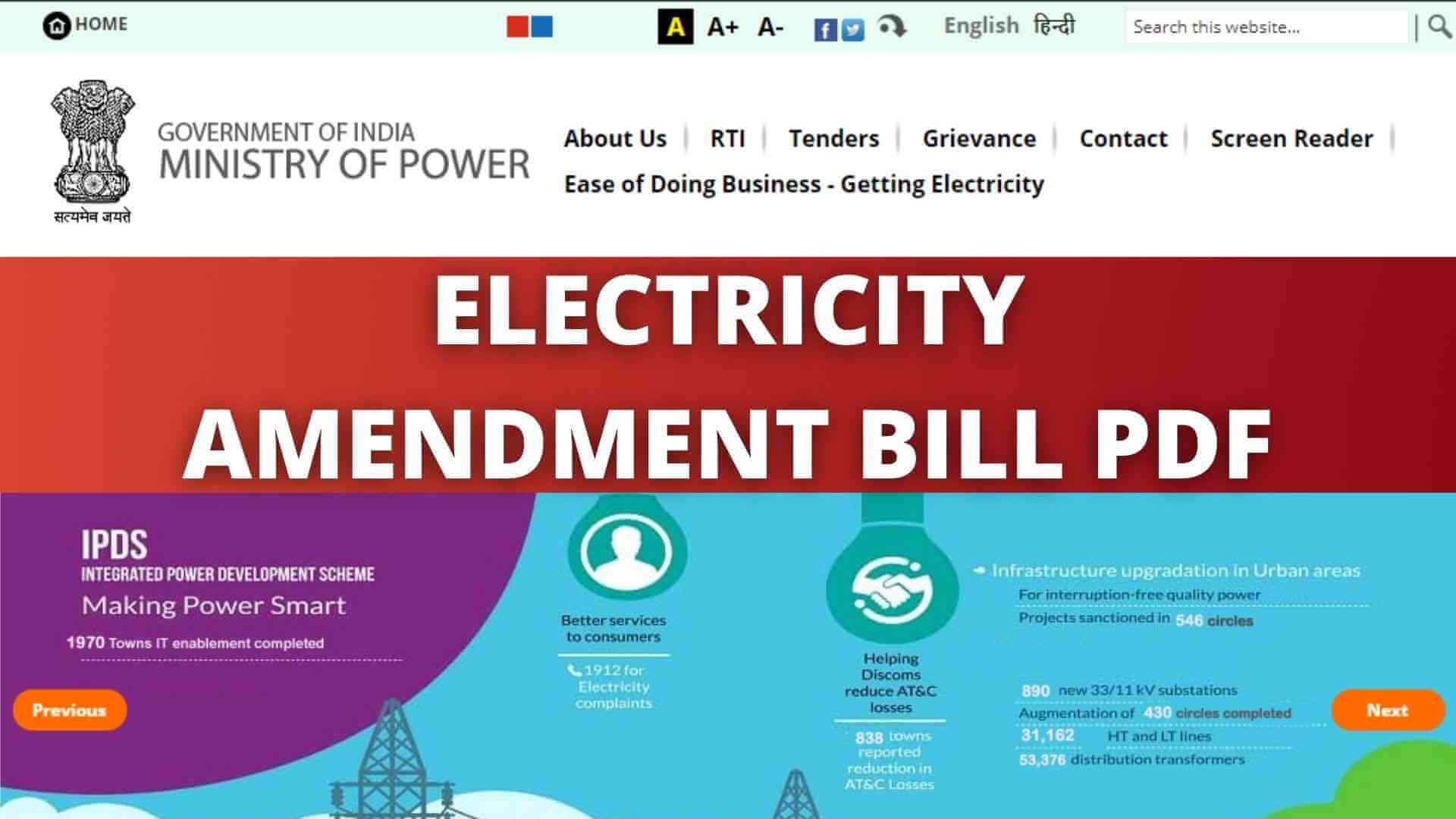The Electricity (Amendment) Bill, 2021
Why in news?
The Electricity (Amendment) Bill, 2021 is likely to be pushed for passage in the ongoing monsoon session of Parliament.
Why The Electricity (Amendment) Bill is brought?
-Despite power sector reforms, the Electricity distribution companies are not able to pay the generation /transmission companies , banks / financial institutions due to compromised financial health.
-Electricity distribution (Discom)is at the cutting edge /Face /Maukhta of the power sector.
-A holistic power related reform is the needed badly.
What are the Key features of Electricity (Amendment) Bill, 2021?
-De-licensing: Electricity distribution is del-icensed (just like the generation.), giving consumers a choice to choose a distribution company in their area.
-Universal service obligation: There is the provision of a universal service obligation fund, which shall be managed by a government company.
This fund shall be utilized to meet any deficits in cross-subsidy.
Cross subsidization is the practice of charging higher prices to one type of consumers to artificially lower prices for another group.
- Security deposit -In case of supply through pre-paid meters, security deposit will not be required.
- Rights and duties of electricity consumers -The bill also prescribes the rights and duties of electricity consumers.
-Appellate Tribunal for Electricity (APTEL): will be strengthened by an increasing number of members.
-The domains from where the chairperson and members of Central Electricity Regulatory Commission (CERC) and State Electricity Regulatory Commissions (SERC) will come have been described.
-Renewable Power Obligation: The responsibility of fixing renewable power obligations (RPO) is shifted from state commissions to the central government. This will help in achieving the national climate change goals.
-Penalty: Penalty for contravention of the provisions of the Act has been increased up to Rs 1 crore.
Non-fulfillment of RPO (Renewable Purchase Obligation).)will attract stringent penalties as per the proposed amendments.
The RPO is a mechanism by which the obligated entities (mainly power distribution utilities or discoms) are obliged to purchase a certain percentage of electricity from renewable energy sources, as a percentage of the total consumption of electricity.
What is Central Electricity Regulatory Commission (CERC) ?
Central Electricity Regulatory Commission (CERC), a key regulator of power sector in India, is a statutory body functioning with quasi-judicial status under sec – 76 of the Electricity Act 2003.
CERC was constituted in 1998 under the Ministry of Power's Electricity Regulatory Commissions Act, 1998 for
-Rationalization of electricity tariffs,
-Transparent policies regarding subsidies,
-Promotion of efficient and environmentally benign policies, and for matters connected Electricity Tariff regulation.
CERC was instituted primarily to regulate the tariff of Power Generating companies owned or controlled by the government of India, and any other generating company which has a composite scheme for power generation and interstate transmission of energy, including tariffs of generating companies.




.jpg)
.jpg)
.jpg)
.jpg)
.jpg)





